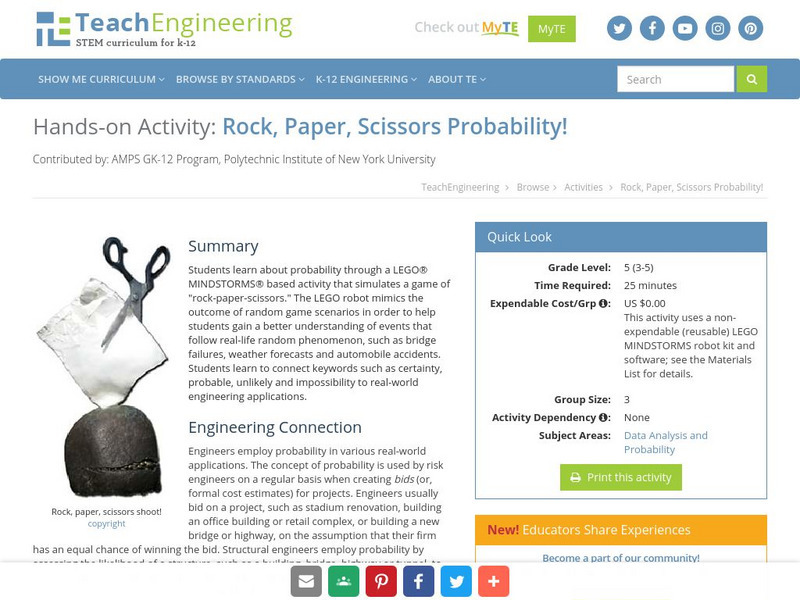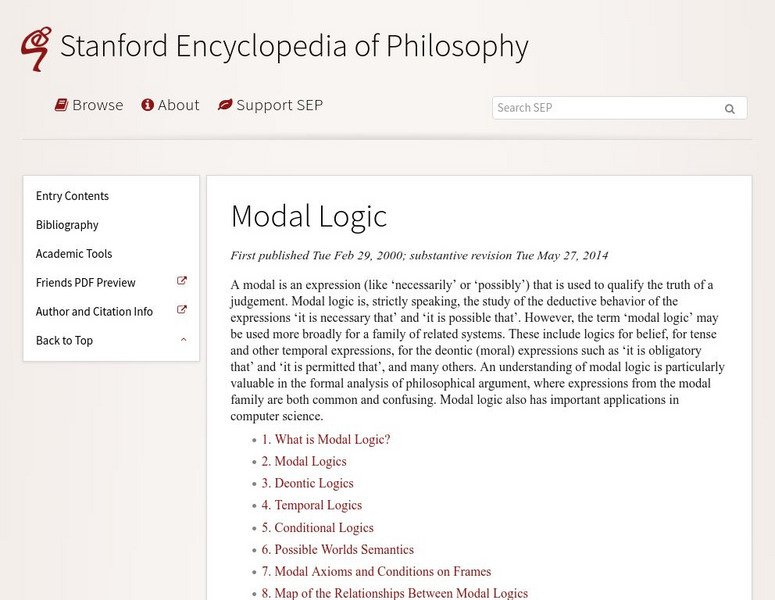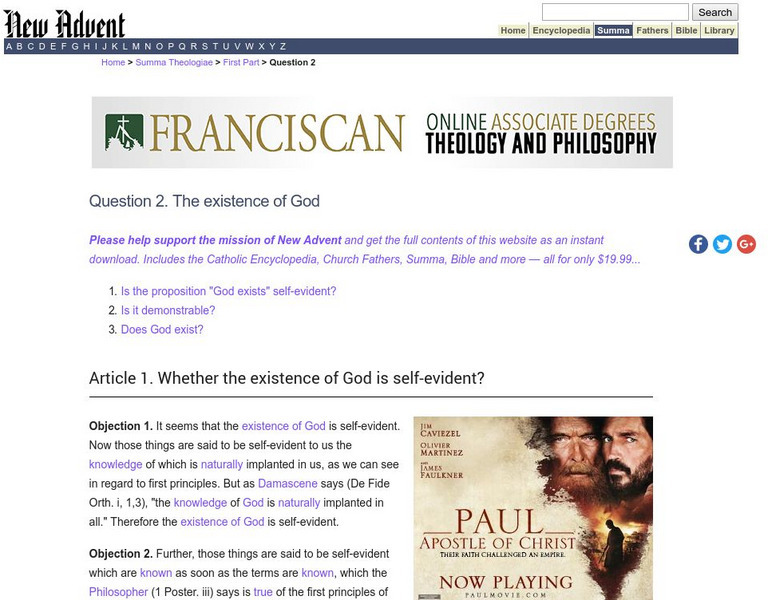Curated OER
The Right Stuff: Getting Personal
In this writing worksheet, young scholars identify five things that they like about themselves. They write what their best friend would say they like the most and what makes them proud of who they are. Finally, students identify what...
Curated OER
The Uses of "Can"- "May, Might, or Be Able To"
In this uses of can worksheet, students insert the word "may" to show permission, the word "might" to show possibility, or the words "be able to" to show ability in each of 6 sentences. They follow the given example.
TeachEngineering
Teach Engineering: Rock, Paper, Scissors Probability!
Students learn about probability through a LEGO MINDSTORMS NTX-based activity that simulates a game of "rock-paper-scissors." The LEGO robot mimics the outcome of random game scenarios in order to help students gain a better...
Stanford University
Stanford Encyclopedia of Philosophy: Modal Logic
Explains modal logic by means of logical notation. Somewhat difficult for a non-specialist to appreciate. However, the introductory section does provide a general definition of "modal logic."
Boston University
Boston University: Belief Worlds and Epistemic Possibilities
This site from the Boston University argues that belief, and not only knowledge, can establish epistemic possibilities for an individual. Redescribes knowledge as an "ability to shift attention among our various belief worlds."
New Advent
Catholic Encyclopedia: Whether God Exists?
Excerpt of famous passage in Aquinas's "Summa Theologica" in which he presents his five proofs for God's existence. This influential primary text should be of historical interest to anyone studying philosophy of religion. Please note...







